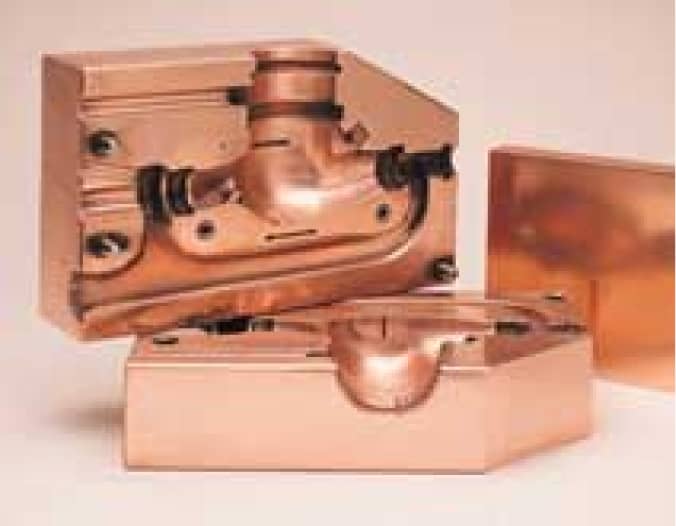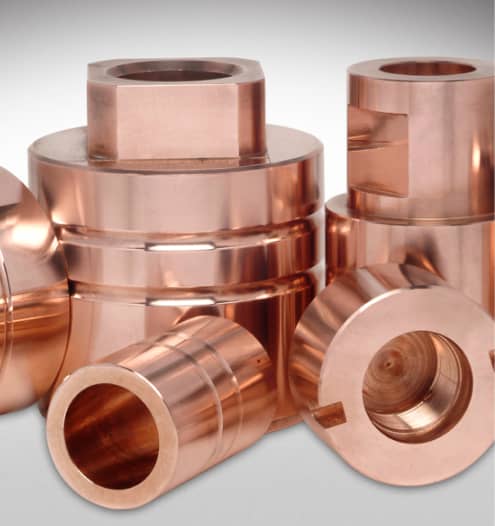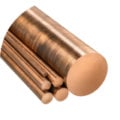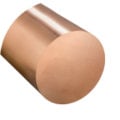Die Casting


Die casting is a metal casting process in which molten metal is injected into a mold under high pressure and then solidifies into the desired shape. A highly efficient and precise manufacturing process, die casting can produce complex shapes with tight tolerances and excellent surface finishes. It is commonly used to produce automotive parts, electronic components, and other high-volume industrial products.
Advantages of die casting
It is not for nothing that die casting is an integral part of production in so many different industries, as it offers several advantages over other manufacturing processes. Some of these advantages include the following:
- High efficiency, as die casting can produce parts with tight tolerances and minimal post-processing requirements. The process can also be automated, allowing for high-volume production runs.
- Versatility, as it can produce parts of varying sizes, shapes, and complexity.
- Consistency, as the automated high-volume production runs, provides consistent and repeatable results. This makes it an ideal process for producing large quantities of parts that must meet strict specifications.
- Design flexibility, as it can produce parts with complex geometries and intricate features.
These advantages contribute to the process being comparatively low cost, as it requires minimal post-processing and can be automated for maximum efficiency.
Die casting molds
To withstand the high pressures and temperatures involved in the process, die casting requires specialized equipment such as a die casting machine, furnace, cooling system, and finally, trimming and finishing equipment to remove excess material and improve surface finish. However, the most important piece of equipment is undoubtedly the mold itself.
The mold is the tooling to form the molten metal into its desired shape. It typically consists of two halves machined to form the shape of the part. Because they are a critical component of the die casting process, they require careful design to withstand the high pressure and temperature involved in the process.
Designing and manufacturing die casting molds requires specialized knowledge and expertise in tool and die making, metallurgy, and engineering. The mold’s quality can significantly impact the quality, consistency, and efficiency of the die casting process, as well as the overall cost of production. Therefore, selecting the right mold material is critical to the success of the die casting process. One material that is ideal for gravity die casting molds is high conductivity copper alloys.
The use of high copper alloys in die casting
High copper alloys, such as AMPCOLOY 940 and AMPCOLOY 95, are the materials of choice for manufacturing die casting molds. As alluded to before, the die casting process involves high temperatures and pressures. These high copper alloys offer excellent thermal conductivity, which helps prevent the mold from warping or cracking due to thermal stress. Moreover, these alloys exhibit high wear resistance, making them ideal for use in high volume die casting applications where molds undergo frequent use. Other significant reasons why AMPCOLOY 940 and AMPCOLOY 95 are the perfect alloys for die casting molds include:
- Corrosion resistance: Alongside their wear resistance and high thermal conductivity, these high copper alloys are highly resistant to corrosion, making them ideal for use in environments where the mold may be exposed to moisture or other corrosive substances.
- Machinability: AMPCOLOY 940 and AMPCOLOY 95 are relatively easy to machine and can be machined to tight tolerances, allowing the manufacture of complex die casting molds.
- Cost-effectiveness: Even though these high copper alloys may be more expensive than other tooling materials, their durability and resistance to wear and corrosion often result in them being more cost-effective over time. The alloys’ long lifespan can offset their initial higher costs by reducing the need for frequent replacement or maintenance.
- Enhanced safety: These high copper alloys, especially those like AMPCOLOY 95 which contains Beryllium, demonstrate superior spark resistance properties. This enhances safety in hazardous environments where ignition of flammable or explosive materials may be a concern.
Our solution for your die casting tooling needs
As an integrated partner that understands specific application needs, AMPCO METAL produces a full range of performance alloys for the die casting tooling industry that ensure repeatability and reliability.
Our patented MICROCAST® technology gives our metal a refined microstructure that, when combined with our alloys’ high hardness and high thermal conductivity, improves the wear resistance for maximum service life and performance.
We produce molds that are precisely machined on our in-house CNC machining centers to ensure consistency of alloy quality and are particularly well suited for low-pressure non-ferrous die casting, and plunger tips for the aluminum die casting industry. We use in-house melted and cast alloys such as AMPCOLOY® 88, AMPCOLOY® 95, and AMPCOLOY® 940. These alloys are ideal for molds and producing non-ferrous faucets, taps, water mixers, and components in the low-pressure die casting process.

